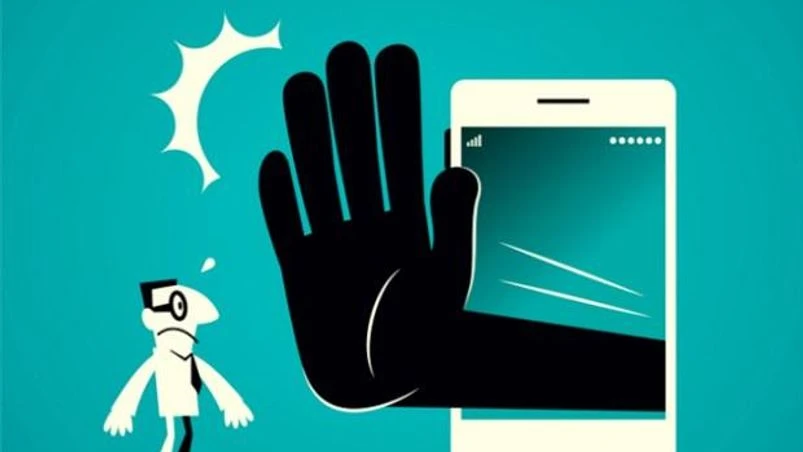 Internet shutdowns bleeding businesses, hitting country's image
Internet shutdowns bleeding businesses, hitting country's image
Internet shutdowns can throw normal life out of gear. India lost an estimated $2.8 billion last year due to the internet blockades, which was unwanted in most cases. This report finds out more
)
Internet shutdown
On September 26 this year, over 10 districts of Rajasthan, including the capital city of Jaipur, faced a dawn to dusk internet shutdown. The reason? The administration of these districts wanted to prevent cheating in a teachers’ exam.
More recently, mobile internet services were snapped in Lakhimpur Kheri and adjoining districts as a precautionary measure, days after an incident of violence.
And Jammu and Kashmir tops the chart for internet shutdowns. The state saw 213 days of continued internet blackout from August 5, 2019 to March last year when just 2G services were restored.
It was done to curb any potential unrest in the valley in the wake of the government’s decision to render all the provisions of Article 370, barring the first one, inoperative. This article of the Constitution provided special status to Jammu and Kashmir. 4G services were restored in Jammu and Kashmir in February this year, after 552 days of no or slow internet.
The Parliamentary Standing Committee on Communications and Information Technology (IT) has recently noted that internet shutdowns, often imposed in an arbitrary manner, have led to huge economic losses, untold suffering for the public, and ‘severe reputational damage’ to the country.
According to The Global Cost of Internet Shutdowns report released by Top10VPN, India lost around $2.8 billion in 2020 to internet shutdowns. There were 75 internet shutdowns in India in 2020, more than any other country in the world, thus earning India the dubious distinction of being called the internet shutdown capital of the world. Internetshutdown.in pegs the number of internet blackouts by India in 2020 at 129.
Also Read
So how do internet shutdowns affect businesses? Beyond the obvious examples of employees who are working remotely facing difficulties in communication, consider this: India has more than 15 million WhatsApp Business users, a lot of whom are small and medium businesses.
They rely on digital modes of payment such as UPI. Everything from the delivery of healthcare services to ration gets affected too. According to the Cellular Operators Association of India, telecom operators lose Rs 24.5 million (Rs 2.45 crore) per hour in every circle area where there is a shutdown.
While the rules in India say that internet shutdowns should only be imposed to maintain ‘public order’ and ‘public safety’, they are often imposed purely for administrative convenience, just like what happened in Rajasthan.
Last month, the Parliamentary Committee asked if the government can selectively block social media platforms such as Facebook and WhatsApp during times of social unrest, instead of a blanket shutdown of all internet services.
We also spoke to defence expert Abhijit Iyer-Mitra to understand whether internet shutdowns are a good policy move to clamp down on security threats.
So, as the Parliamentary panel has suggested, the government should frame a mechanism to tackle the arbitrary internet shutdowns by the authorities. The government should resort to it only in cases of public emergency. If they keep shutting the internet on vague grounds, it’s going to seriously hamper every Indian’s economic welfare and the country's image too.
Watch video
More From This Section
Don't miss the most important news and views of the day. Get them on our Telegram channel
First Published: Dec 09 2021 | 8:30 AM IST

